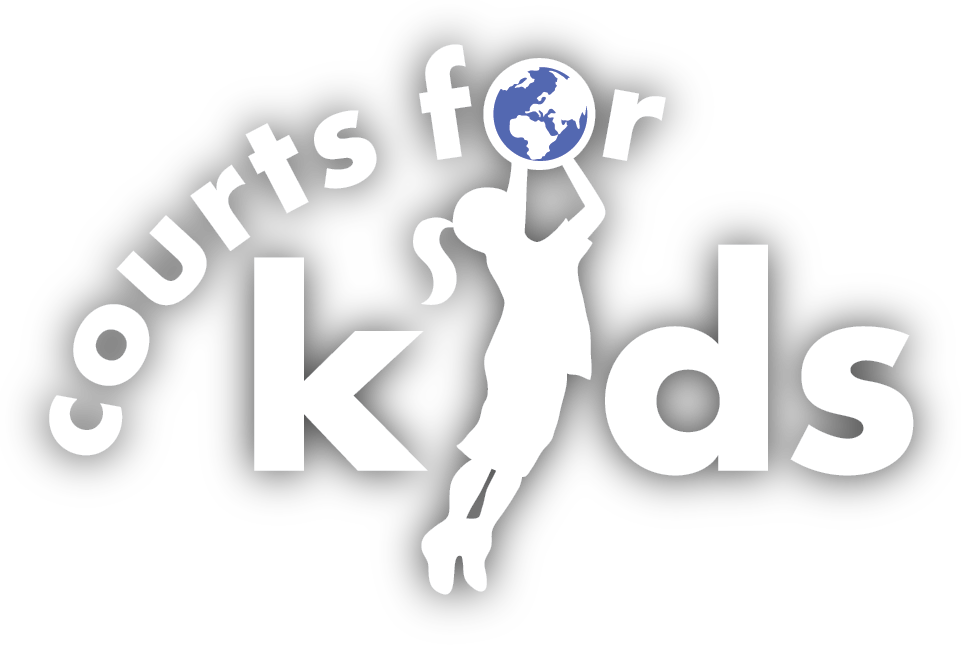Jesuit Nola students to Peru
Torres Huaylla de Namora, Peru - A team of 19 Courts for Kids volunteers from Jesuit High School in New Orleans traveled to the community of Torres Huaylla de Namora, a rural Andean community in northern Peru. The 19 young men won the trust of the host community by organizing soccer games, visiting community members’ homes, participating in cultural activities, and showing a sincere interest in getting to know the people of Torres Huaylla. Winning the trust of the community was a great achievement because the people have become doubtful of foreigners after being exploited and lied to by foreign mining companies that have come to profit off of the region’s mineral wealth. The Courts for Kids volunteers were genuine ambassadors; they did an outstanding job of representing Courts for Kids, Jesuit High School, the city of New Orleans and the United States.
The Courts for Kids team and the community members were eager to build a sports court, however they encountered challenges that people in marginalized communities face every day, which means they spent the time preparing the land for the court. When they left, it was getting close to pouring, as you can see in the picture to the left. The project’s timely completion heavily depended on the dedication and execution of the municipal government to deliver materials and, due to bureaucracy and not prioritizing the rural community’s project, the project fell behind schedule and the Courts for Kids team and community were not able to complete the court.
Although the team wasn't able to see the finished product, their hard work and fundraising will ultimately make this court a reality for the community, just on a different time schedule than we had planned on. The team and community, however, did labor for a week laying the foundation of the court and making sure it was level. They also repainted the community center and created three murals that represented the strengths of the community. The Courts for Kids volunteers witnessed firsthand the grind people need to go through to survive. They dealt with inhospitable temperatures, extreme altitudes and very primitive living conditions on top of the struggles with the court. The volunteers returned home humbled, understanding that the people of Torres Huaylla, and communities all over the world, face these challenges daily.
This trip has made me aware of different cultures and allowed me to better understand people as a whole. Also, this trip has inspired me to reach out to other countries and people in the near future. Whenever I do service for others, the most lasting impact is always how much I take for granted in the U.S. Projects on this scale always make my eyes open much wider however. I get caught in the rush of life never taking a moment to be truly grateful for the luxuries I’m afforded in everyday life. I was shocked to learn that the men and women who did everything within their means to immerse us in their culture were embarrassed that they didn’t do more to make us comfortable. How can someone truly learn another way of life if it’s no different from the one he is already living? For the very reason they were ashamed, I’m beyond grateful. Experiences such as these leave a lasting imprint on my life that drives me to discover more about myself and the world.
The memories I will take with me include playing soccer with the locals, riding a donkey, picking the dirt and moving rocks, the visit to the zoo, the food, and when we realized that we couldn’t finish the court and how we came together to do something for the community. I gained a different cultural context of life. I became as close as family with several different host families. I gained more knowledge and understanding of the Spanish language.
I now see how Peruvian (and non-Americans in general) perceive Americans differently than we perceive ourselves. For example, the woman on the mountain by the lagoon of St. Nicholas assumed we were just there to exploit the land and not to learn about the Cajamarcan culture.
The greatest impact that this trip has had on me was that it taught me to be flexible; everything didn’t always go as planned, but it taught me to better adapt to unexpected situations and circumstances. I also learned to live in situations far different from my home, which makes me better aware of other cultures as well as what I have at home.






